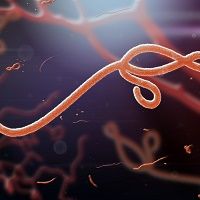Results Are in from Phase 1 of New Ebola Vaccine Trial
Researchers will no longer have to test Ebola virus vaccines using the virus strain from the 1976 Zaire outbreak because the results from phase 1 of a new trial are in.

Researchers will no longer have to test Ebola virus vaccines using the virus strain from the 1976 Zaire outbreak because the results from phase 1 of a new trial are in.
A team from China conducted a random, double-blind study, published in The Lancet, to assess the safety and immunogenicity of an Ebola vaccine. Fen-Cai Zhu, MSc, and his colleagues from the Jiangsu Provincial Center for Disease Prevention and Control, ran a trial with an adenovirus type-5 vector-based vaccine that seems to be moving in the right direction.
The study pool consisted of 120 healthy Chinese adults between the ages of 18 and 60 who were randomly assigned to either receive a placebo, low-dose of the vaccine, or high-dose of the vaccine. The participants took the placebo or vaccine dose from Dec. 28 to Jan. 9 and the team continued to follow up with them for 28 days after the final dose was administered.
Zhu and his team found that there was a significant increase in glycoprotein-specific antibody titres in patients who received either the low-dose or high-dose vaccines at both the 14- and 28-day marks. T-cell responses peaked at day 14 in both of the groups as well with 465:0 spot-forming cells for low-dose and 765:0 for high-dose.
On day 28, 38 out of the 40 low-dose participants and all 40 high-dose participants had positive immune responses. It was also noted that those who received the high-dose had a larger amount of antibodies than those who received the low-dose.
"On the basis of our findings, we believe that the Ebola vaccine we assessed has some potential, and a significant advantage of this type of vaccine is that stable and much easier to store or transport in tropical areas with inadequate cold-chain capacity, such as Africa,” Zhu said in a news release.
Although the team concluded that the high-dose vaccine is safe, extremely immunogenic, and just one dose creates the glycoprotein-specific and T-cell response, it is uncertain if it will become the final vaccine against Ebola. Challenges include the pre-existing immunity of Ebola and HIV-1 acquisition rates in places like West Africa.
Out of the participants 68%, or 82, had at least one solicited adverse reaction within 7 days of the vaccine (19 from placebo, 27 from low-dose, and 36 from high-dose.) Mild pain at the injection site was the most common reaction. There were 21 participants who had a mild fever but no serious reactions were reported.
”More evidence from clinical trials is needed about these concerns,” Zhu said.“Furthermore, these results only assess immune response up to 28 days, so we plan to assess the persistence of the specific immune response by following up the vaccine recipients of this study."